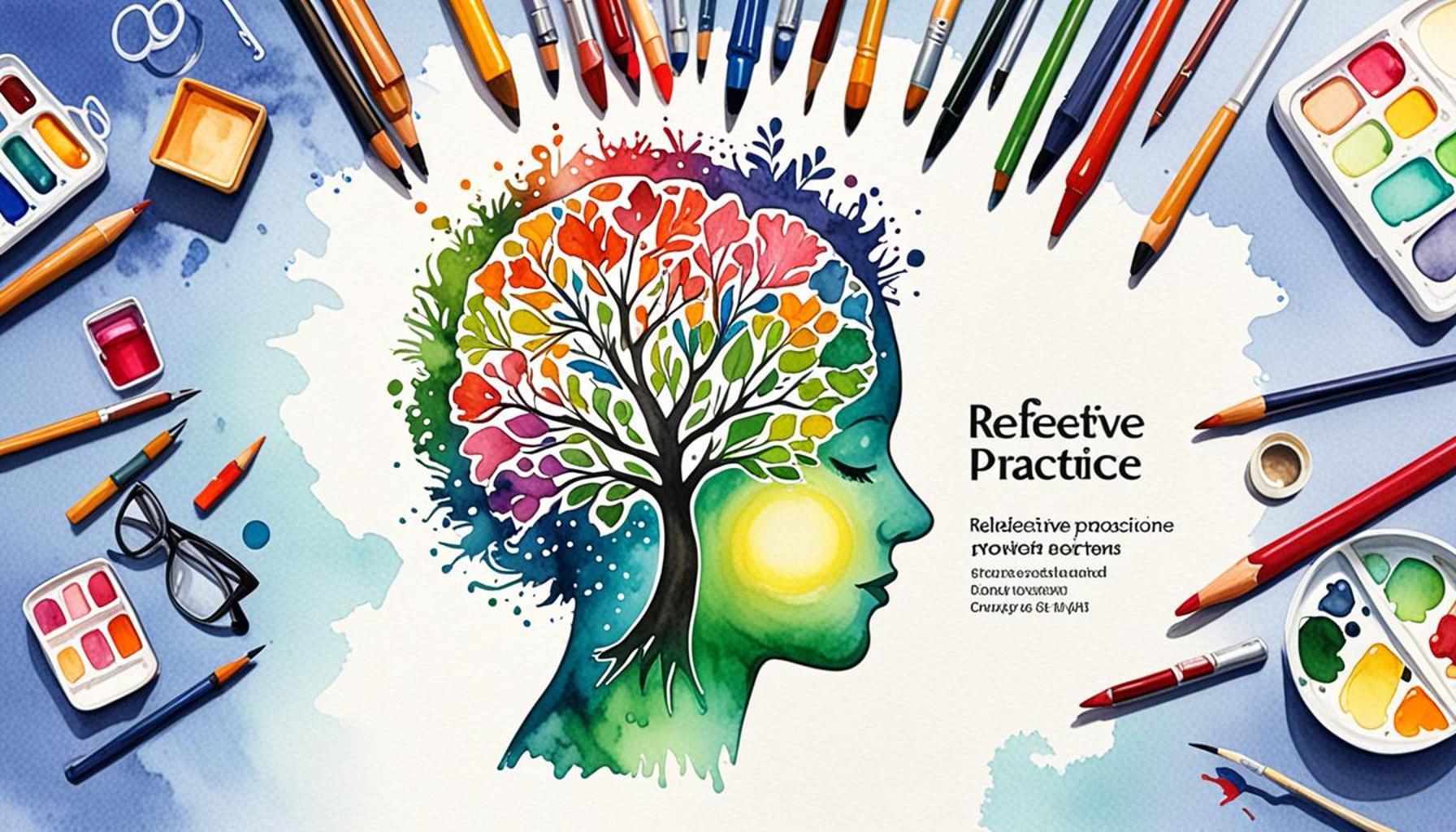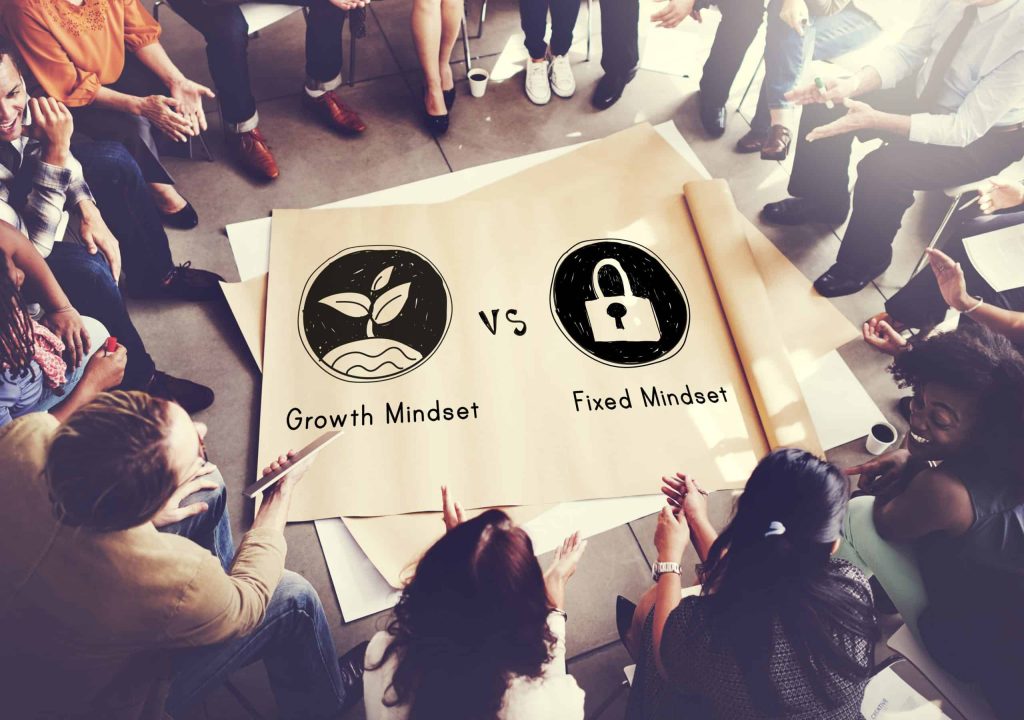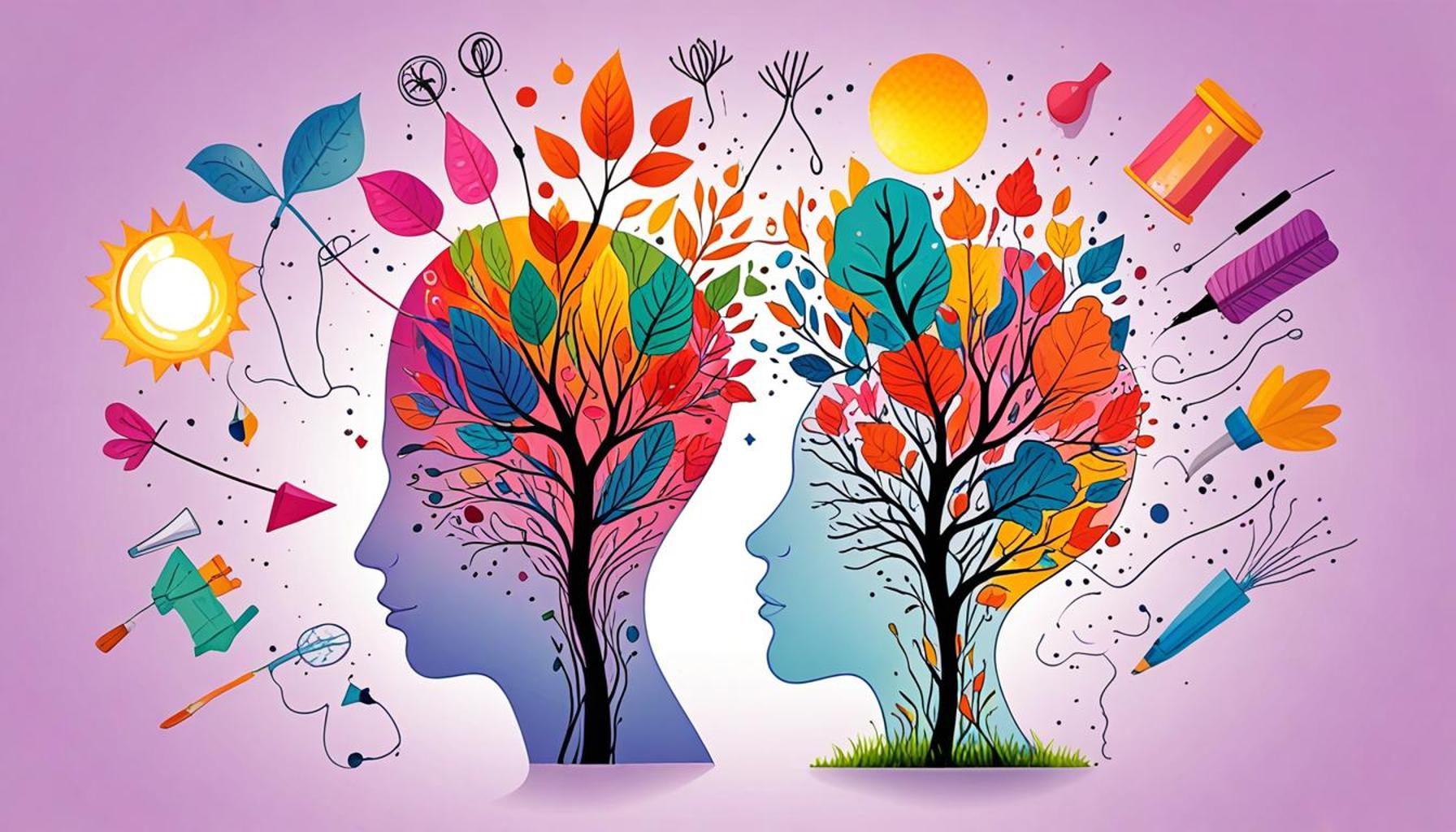Reflective Practice Strategies for Developmental Professionals: Building a Sustainable Growth Mindset

Understanding Reflective Practice in Developmental Services
Reflective practice is an intriguing and vital aspect of professional development, particularly within the developmental services sector in Nigeria. This approach encourages individuals to deeply analyze their experiences, thoughts, and actions to foster growth and improvement. By integrating reflective practices into their work, professionals can not only enhance their personal development but also significantly improve the quality of support they provide to various communities.
Self-Awareness: The Foundation of Growth
One of the core elements of reflective practice is self-awareness. This involves professionals taking the time to evaluate their own strengths and weaknesses critically. For instance, a social worker in Lagos may recognize their strength in building rapport with clients but identify a challenge in handling administrative tasks efficiently. Armed with this knowledge, they can seek out training or mentorship in time management, ultimately leading to better service delivery.
Critical Thinking: Making Informed Decisions
Critical thinking is essential for analyzing various situations and outcomes. It empowers professionals to assess their encounters thoughtfully and derive informed conclusions. For example, a healthcare worker may need to evaluate conflicting feedback from clients about the quality of a health initiative. By systematically examining this feedback against outcomes and broader community needs, they can devise a more effective strategy that aligns with their service goals, ultimately enhancing overall impact.
Adaptability: Navigating Change
In an ever-changing environment, adaptability plays a crucial role in ensuring resilience. Professionals in Nigeria frequently face unexpected challenges, such as shifts in government policy or community needs. A developmental officer, by embracing change, can innovate and employ new strategies that better meet these evolving challenges. For instance, they might shift their focus from traditional in-person workshops to virtual training sessions to accommodate clients during times of crisis.
Benefits of a Sustainable Growth Mindset
Fostering a sustainable growth mindset is instrumental for developmental professionals. This mindset nurtures a culture of lifelong learning, where individuals are encouraged to pursue their passions and refine their skills continuously. Some advantages include:

- Enhanced problem-solving skills: Embracing new challenges equips professionals with the tools to devise effective solutions quickly.
- Stronger professional relationships: By practicing self-reflection, professionals can engage with colleagues and clients more meaningfully, leading to better collaboration.
- Increased empathy and understanding: Reflective practice cultivates a deeper awareness of others’ experiences, which is essential in providing nuanced and effective service delivery.
Practical Approaches to Implement Reflective Practice
Implementing effective reflective practice strategies can be transformative. Professionals can utilize methods such as regular journaling, peer supervision sessions, and facilitated group discussions on experiences. These strategies encourage a continuous dialogue about challenges and successes, offering valuable insights that can drive individual and organizational improvement. By adopting reflective practices, professionals not only facilitate their personal growth but also contribute significantly to the advancement of the developmental services sector in Nigeria, serving communities more effectively and compassionately.
LEARN MORE: This related article may interest you
Practical Strategies for Implementing Reflective Practice
Reflective practice is not merely a theoretical concept; it is a set of actionable strategies that developmental professionals in Nigeria can integrate into their daily routines. These strategies are designed to cultivate a sustainable growth mindset, where individuals are encouraged to learn continually from their experiences. By embracing these reflective practices, professionals can enhance their efficacy, adapt fluidly to changes, and address community needs in a more nuanced manner.
Regular Journaling: A Personal Reflection Tool
One of the most accessible methods for reflective practice is regular journaling. This involves setting aside dedicated time to document experiences, thoughts, and emotional responses to various situations encountered throughout the workday. For instance, a developmental social worker in Ibadan may reflect on a particularly challenging family situation, analyzing what strategies worked, what did not, and how they felt during the process. This practice not only enhances self-awareness but allows for a historical account of growth over time, making it easier to identify trends and areas needing further development.
Peer Supervision and Feedback Sessions
Another effective strategy is engaging in peer supervision. By collaborating with colleagues who understand the challenges faced in the developmental services sector, professionals can create a supportive environment for discussing difficulties and sharing insights. For example, a group of educational counselors might meet weekly to discuss case studies, offering different perspectives on complex issues. This collective effort fosters critical thinking and encourages innovative solutions tailored to their community’s unique needs.
Facilitated Group Discussions: Building Community Knowledge
Facilitated group discussions serve as a powerful tool for enhancing collective understanding. By organizing regular meetings where professionals can openly discuss their experiences and challenges, organizations foster an environment of shared learning. During these sessions, participants can explore themes such as teamwork, communication, and ethical dilemmas. These discussions can lead to collaborative problem-solving and the development of new initiatives that effectively address community issues. For instance, a community health organization could develop best practices for outreach based on shared experiences from various members.
Utilizing Feedback Loops
Implementing feedback loops is essential for continuous improvement. Professionals should not only seek feedback from peers but also actively solicit insights from clients and the communities they serve. For example, conducting routine satisfaction surveys or informal interviews helps in understanding service delivery’s impact, demonstrating respect for client input and enhancing accountability. By acting on this feedback, professionals can tailor their approaches, ultimately refining their skills while ensuring they align with the needs of the populations they serve.
Adopting these practical reflective practice strategies forms the foundation for building a resilient and adaptable workforce in Nigeria’s developmental services sector. When professionals commit to reflection as a continual process, they empower themselves to foster personal growth and drive systemic change in their communities.
| Advantages | Description |
|---|---|
| Enhanced Self-Awareness | Reflective practice encourages developmental professionals to closely analyze their actions and decisions, leading to a deeper understanding of personal strengths and weaknesses. |
| Informed Decision Making | Strategic reflection allows professionals to make better, informed choices, adapting their strategies based on past experiences. |
| Continuous Improvement | Building a sustainable growth mindset fosters an environment where learning is ongoing, enabling professionals to constantly refine their skills. |
| Collaboration and Feedback | Reflective strategies enhance teamwork by promoting open dialogue and constructive feedback, resulting in enriched professional relationships. |
Incorporating these reflective practice strategies can significantly benefit developmental professionals. By focusing on self-awareness, informed decision-making, continuous improvement, and fostering collaboration, practitioners not only enhance their own skills but also create a robust framework for sustainable growth in their work environments. Understanding these advantages can motivate professionals to engage with reflective practices fervently, leading to enriched personal and collective outcomes in the field of developmental services. The insights gathered through reflection ultimately contribute to improved client interactions and service delivery, forming the backbone of effective professional practice.
ADDITIONAL INSIGHTS: Expand your understanding here
Harnessing Learning Opportunities Through Action Research
Another impactful strategy for developmental professionals is the adoption of action research. This method fosters a cyclical process of planning, acting, observing, and reflecting. By engaging in action research, professionals can systematically investigate their practices to identify areas for improvement. For instance, a youth program coordinator in Lagos may launch a pilot initiative aimed at increasing community engagement. Through collecting data on participation rates and gathering feedback, they can assess the initiative’s effectiveness. This data-driven approach not only empowers professionals to make informed adjustments but also reinforces a culture of continuous improvement.
Embracing Technology for Reflective Practice
In the digital age, technology can significantly enhance reflective practices. Utilizing tools such as mobile apps or online platforms for journaling, sharing insights, or accessing professional development resources can streamline the reflection process. For example, platforms like WhatsApp or Facebook groups can serve as virtual hubs for peer discussions, where professionals share experiences and insights in real-time. Such integration of technology ensures that reflective practice is not only more engaging but also reaches wider audiences, breaking geographical barriers.
Personal Development Plans
Establishing a personal development plan (PDP) is crucial for setting clear, achievable objectives that guide professional growth. These plans should be tailored to individual strengths, areas for improvement, and long-term aspirations. For example, a social worker may outline aspirations to enhance specific skills, such as conflict resolution or cultural competence, identifying concrete steps to achieve them through workshops, webinars, or mentorship opportunities. Regularly reviewing and updating the PDP allows professionals to reflect on their progress, celebrate milestones, and recalibrate as necessary within their careers.
Participatory Reflection: Involving Clients
Inviting clients into the reflective process creates a participatory reflection environment that benefits both service providers and recipients. Engaging clients through focus groups or feedback sessions enables professionals to gain critical insights into their services. For example, a rehabilitation center in Abuja might host regular meetings with former clients to discuss their experiences and gather suggestions for improvement. This not only fosters a sense of community but also empowers clients by valuing their voices in shaping services that directly affect them. By incorporating client perspectives, professionals are better equipped to tailor their approaches, leading to more impactful interventions.
Self-Care as a Reflective Practice Component
Lastly, integrating self-care practices into daily routines is essential for maintaining a healthy mindset that supports reflective practice. The demanding nature of developmental work can lead to burnout if not appropriately managed. Ensuring regular self-reflection through self-care activities—such as mindfulness, exercise, and leisure pursuits—allows professionals to recharge. For instance, after a particularly intense period of work, engaging in weekend retreats or nature walks can provide a fresh perspective. This holistic approach re-energizes professionals, ultimately enhancing their engagement in reflective practice.
These diverse strategies serve as practical tools for fostering a sustainable growth mindset among developmental professionals. By employing these approaches, individuals can navigate the complexities of their roles with a lens that values continuous learning, ultimately leading to improved services within their communities.
LEARN MORE: This related article may interest you
Conclusion
In the realm of developmental work, reflective practice emerges as an indispensable tool for cultivating a sustainable growth mindset. As we have explored, strategies such as action research, technology integration, and the establishment of personal development plans not only enhance individual effectiveness but also contribute to overall community wellbeing. By embracing a cycle of constant reflection and adaptation, professionals can continuously refine their methodologies and respond adeptly to the evolving needs of the communities they serve.
Moreover, the incorporation of participatory reflection and client involvement provides invaluable insights, ensuring that services are both relevant and impactful. Clients, as active contributors to the reflection process, can shape interventions that resonate deeply with their experiences. This collaborative approach fosters trust and strengthens community ties, creating synergy between service providers and recipients.
Lastly, let us not overlook the critical aspect of self-care. Acknowledging the challenges of developmental work and actively seeking moments of rejuvenation are essential for maintaining the energy needed to engage in reflective practices. By prioritizing self-care, professionals position themselves to stay motivated and effective in their roles.
Ultimately, these reflective practice strategies equip developmental professionals with the tools necessary to navigate the complexities of their work. As they commit to this continuous journey of learning and growth, the potential for transformative impact within their communities stands to flourish. This makes the pursuit of a sustainable growth mindset not just an aspiration, but a vital necessity for nurturing resilience in the ever-changing landscape of developmental challenges.


